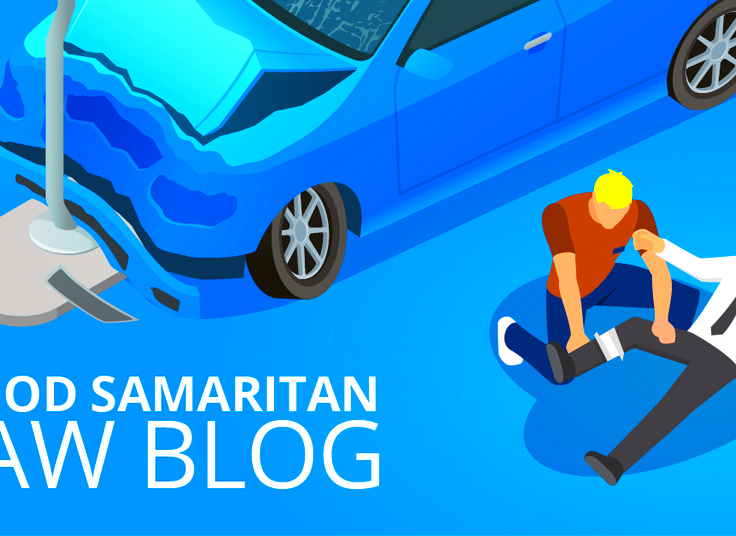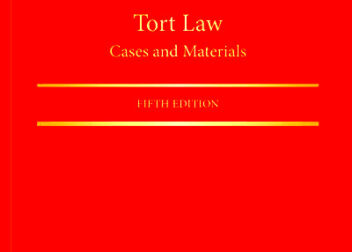Understanding the Good Samaritan Law in Florida
The Good Samaritan Law in Florida is designed to encourage people to assist others during emergencies without fear of being sued for their actions. If someone steps in to help during a medical emergency, this law provides them with legal protection, as long as their actions are reasonable and done in good faith. It’s important to note that this law does not protect individuals who act recklessly or with gross negligence while offering help.
By reducing the risk of legal consequences, the law aims to make sure that bystanders are more likely to offer potentially life-saving aid without hesitation.
Purpose of the Good Samaritan Law

The primary purpose of the Good Samaritan Law in Florida is to encourage quick action in emergencies by offering legal protection to those providing assistance. This law recognizes that moments of crisis demand immediate response, and it seeks to remove the fear of legal repercussions if something goes wrong during the help provided.
Key purposes of the law include:
- Encouraging people to help: By offering legal protection, the law motivates bystanders to step in and provide help when needed.
- Preventing lawsuits: The law shields individuals from being sued for unintended outcomes as long as their actions were reasonable and in good faith.
- Promoting public safety: Immediate aid can make a significant difference, and this law helps ensure that people aren’t discouraged from helping due to legal concerns.
Who is Protected Under Florida’s Good Samaritan Law?

Florida’s Good Samaritan Law extends its protection to a variety of individuals who provide aid during emergencies. These include:
- Ordinary citizens: Anyone who offers help in an emergency, whether they have medical training or not, is covered by the law.
- Medical professionals: Doctors, nurses, and other healthcare workers who provide emergency aid outside of their formal workplace are also protected under this law.
- First responders: Firefighters, paramedics, and police officers who act outside of their duty hours are offered legal protection.
However, it’s important to understand that this protection only applies when the individual is acting in good faith. If someone helps with reckless intent or causes harm through gross negligence, the law will not shield them from legal consequences.
When Does the Good Samaritan Law Apply?

The Good Samaritan Law in Florida applies in situations where someone voluntarily steps in to provide emergency aid. This law is specifically designed for circumstances when immediate help is needed, such as car accidents, sudden medical crises, or other emergencies where someone’s life or health is in danger.
The law applies when the following conditions are met:
- Emergency situation: The law is relevant when someone helps during a genuine emergency where immediate care is necessary.
- Voluntary assistance: The person offering help must not be obligated or compensated for their assistance at that moment.
- Good faith actions: The individual must act with honest intentions, aiming to provide aid without expecting anything in return.
- Reasonable care: The actions taken must be appropriate for the situation and not reckless or harmful.
It’s important to note that the law does not apply to people who are acting in an official capacity (like paramedics on duty) or to those who intentionally cause harm while providing aid.
Limitations and Exceptions to the Law
While Florida’s Good Samaritan Law provides important protections, there are limitations and exceptions to be aware of. These rules help ensure that people offering aid are doing so responsibly and without malicious intent. Not every act of assistance is automatically protected under the law.
Key limitations include:
- Gross negligence: If the person providing help acts with reckless disregard for the safety of others, they may still be held liable. This includes actions that are overly risky or harmful.
- Intentional misconduct: The law will not protect anyone who deliberately causes harm while claiming to assist in an emergency situation.
- Medical professionals during paid duties: Doctors or healthcare workers performing their duties as part of their paid employment are not covered by the Good Samaritan Law; they are subject to different legal standards.
These exceptions are in place to ensure that while people are encouraged to help, they must do so with care and responsibility.
Legal Protection for Medical Professionals
Florida’s Good Samaritan Law extends special legal protections to medical professionals who offer emergency aid outside of their formal work setting. This allows doctors, nurses, and other healthcare workers to provide critical help without fearing lawsuits, provided they are acting in good faith and not for compensation.
Medical professionals are protected under the following conditions:
- Out of workplace aid: The law applies when medical professionals render emergency care outside their regular working hours and outside of medical facilities.
- Uncompensated help: The protection only applies if the professional is not receiving payment for their assistance during the emergency.
- Good faith actions: Like others, healthcare workers must act with honest intentions and use reasonable care while providing aid.
By offering this legal protection, the law encourages healthcare providers to use their expertise during emergencies without worrying about legal risks. However, they must still adhere to their professional standards of care and avoid any reckless or harmful behavior, as this could negate the law’s protection.
How Florida’s Law Compares to Other States
While Florida’s Good Samaritan Law offers legal protection for individuals who provide emergency aid, it’s interesting to compare it with similar laws in other states. Though the core principle remains the same across the U.S.—encouraging people to help without fear of legal consequences—there are some variations in how each state applies the law and what specific protections are offered.
Here’s how Florida’s law differs from or aligns with other states:
- Broad coverage: Like many states, Florida’s law protects both medical professionals and ordinary citizens who assist in emergencies. Some states, however, limit protection to healthcare workers only.
- Scope of protection: Florida provides immunity from civil liability as long as the person acts in good faith and does not behave recklessly. Other states, like New York and California, have additional clauses that may further limit or expand this protection.
- Medical professionals: Many states, including Florida, offer special protection for medical professionals who provide emergency care outside of their work setting. However, in some states, the rules are stricter, limiting this protection to certain situations.
Overall, Florida’s Good Samaritan Law is relatively consistent with the legal protections found in most other states. However, it’s essential to be familiar with the specific laws in each state, as some may offer broader or more restricted coverage, especially for certain professions.
Frequently Asked Questions (FAQ)
1. Does the Good Samaritan Law protect everyone who helps in an emergency?
No, the law only protects those who act in good faith and do not behave recklessly or with gross negligence. People acting with the intent to harm or who cause damage due to careless actions are not protected.
2. Does the law apply to medical professionals during their working hours?
No, the Good Samaritan Law does not cover medical professionals who are performing their paid duties in a medical facility. It only protects them when they offer voluntary aid outside their workplace.
3. What should I do if I want to help someone in an emergency?
If you’re willing to help, make sure to act within your ability, remain calm, and avoid any reckless behavior. The law encourages reasonable care while helping, which means doing your best to assist without endangering others.
4. Can I still be sued even if I act under the Good Samaritan Law?
While the law provides significant legal protection, it does not guarantee complete immunity from being sued. However, as long as your actions are reasonable and done in good faith, you are likely protected from liability.
Conclusion and Key Takeaways
The Good Samaritan Law in Florida plays an important role in promoting public safety by encouraging people to offer help during emergencies. It provides legal protection to individuals who act in good faith, ensuring they are not penalized for their efforts. While the law shields citizens and healthcare professionals from legal consequences, it also includes limitations to prevent reckless behavior.
Key takeaways:
- The law protects individuals who voluntarily assist in emergencies, as long as they act reasonably and in good faith.
- Medical professionals are also protected when offering aid outside their official duties and workplace.
- There are limitations, such as gross negligence or intentional misconduct, where the law does not offer protection.
- Each state’s Good Samaritan Law may vary, but the underlying principle of encouraging assistance remains consistent across the U.S.
Understanding the Good Samaritan Law can give individuals the confidence to help in critical situations, knowing they have legal backing when acting responsibly.


